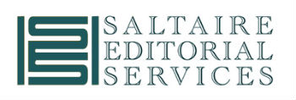|
Freelance editors and proofreaders: have you ever felt as though you’re ‘muddling through’ in your professional life? You’re not alone. The current situation has forced many of us to adjust our plans on a daily (hourly?) basis. But even without a pandemic, freelancers have to adapt to changing circumstances and come up with new plans and different ways of working. I’ve called this ‘muddling through’, but you could also call it flexibility, resourcefulness and ingenuity. Here are seven areas where this flexibility and resourcefulness will come in handy. It’s not intended to be a list of things to worry about! Instead, it’s a recognition of the creativity and pragmatism that many successful freelancers display. 1. Your initial business ideaMost of us start out with some idea of the work we’d like to do, or for which we’d be most suited. With my NHS background, I thought I’d be the ideal person to work on health- or HR-related material. However, my first publisher client specialised in non-fiction books for the general reader, so that was that – at least initially. You might have to review your initial business idea in the light of various factors:
If you’re determined to stick to your original vision, that’s fine. But it’s worth keeping an open mind about the direction you’re going to take. 2. Finding work and clientsAsk a group of freelance editors or proofreaders how they find work and you’ll end up with a list as long as your arm. Some take the direct approach, contacting potential clients with speculative enquiries. Others rely on word of mouth from professional or personal contacts, or repeat business from returning clients. Most find they need to be visible, whether that’s on their own website, through a directory or bidding site, or on social media. Networking can be successful for some. And then there’s the element of luck – the chance encounter with a potential client in an unexpected place (on a train, in the school playground, at a Zoom book club), or simply the ‘you happen to be just what we’re looking for at this moment in time’ scenario. It’s important to plan for finding work and clients so you can focus your efforts to best effect. But it also pays to be alert, flexible and ready to respond to new opportunities. To quote Louis Pasteur: ‘Chance favours the prepared mind.’ 3. Technical issuesOver and above the required editing and proofreading skills, it’s vital that you have a general level of technical proficiency. You never know when you’ll need to adapt. Yes, you might be a whizz with Microsoft Word and all its features and add-ins. But what if a client suddenly wants you to proofread a pdf or a PowerPoint presentation? What if you’re asked to work in Google Docs? It’s not about being an expert in everything. But it’s useful to be able to use a variety of tools when working on different projects. For example, you might copy text from a pdf into Word so you can use PerfectIt or your favourite macros. Copying a table of figures from Word to Excel can be a quick and accurate way of checking an author’s calculations (if that’s part of your brief). Then there’s ‘Maggying’ a corrupted Word document – copying everything except the final paragraph marker into a new document. And would you know where on your computer to look if you couldn’t find the document you’d been working on? It’s impossible to anticipate all possible scenarios and plan for them. But you do need to be able to think laterally if something unexpected happens – and to know when (and where) to seek help from others if you can’t solve the issue yourself. 4. Working hours Are you a morning person? Or do you do your best work while burning the midnight oil? It’s great to be able to choose your working times – and to decide how long you’re going to spend at work – but sometimes you might need to adjust things. How do you cope if you need to put in extra hours? Can your working space accommodate changes (for example, if you share the facilities with other family members)? How do you cope physically with doing a ten-hour day instead of your usual five hours? Again, flexibility is the key. You need to take breaks more frequently if you’re working longer hours. Are there some tasks that don’t require quite the same level of focus as others? If so, could you work on those when your concentration is waning (in the evening, perhaps)? Can you work somewhere else if need be? 5. EquipmentMost of us would admit that we take technology and equipment for granted. We carry on with our work routines assuming that everything will run as it should. But if disaster strikes, emergency action might be required. Saving your work in the cloud is sensible because it means you can access it from another device (if you have something suitable). If your internet connection goes down, you might have to use your mobile data as a short-term solution. Pre-pandemic, you might have chosen to de-camp to your local coffee shop and use their wi-fi, and we’re all hoping that’ll be possible again before too long. Home-based freelancers might even have kind neighbours who can help (a spare laptop cable here, some emergency printing there). While it’s useful to have a back-up plan (an old laptop you could bring back into service if your main computer fails, for example), it’s impossible to prepare for every eventuality. Again, it’s a question of thinking creatively, recognising when and where to ask for help, and knowing at what point to discuss the situation with your client if you’re not going to meet the deadline. 6. Personal or domestic emergenciesA sudden illness, a chronic medical condition, a relative needing help, unexpected childcare demands, not to mention burst water pipes and power cuts … these problems aren’t exclusive to freelancers (nor do they only happen during a pandemic). But if you’re working to a deadline, with no one else who can step in to do your work, situations like these can make things very difficult. Of course, some people choose freelancing precisely because it enables them to work around their personal circumstances, whether that’s their own health condition or their caring responsibilities for children, elderly relatives – or even pets. It’s when the unexpected happens that additional problems can arise. Once again, some extra flexibility is the key. Could you take a break from work and make the time up once the situation is resolved? Perhaps you can temporarily rearrange your working hours? Is there anyone who can help with childcare, even if it’s on a video call with your child while you work for a while? Freelancers often worry about telling their clients about emergencies like this, feeling that it might make them seem unprofessional. I’ve found that clients are usually very understanding about such situations, especially if you can suggest a solution (an alternative deadline, for example). And most clients would rather know you’re struggling, even if you end up not needing extra time to finish the work. After all, they’re human too! 7. Losing a major clientIt’s great when you’ve managed to secure plenty of regular, enjoyable work from a client who pays well and is nice to deal with. It’s not so great if that client suddenly disappears for some reason (bankruptcy, merger or takeover, taking the work in-house, etc.) and you’re left with a gaping hole in your work schedule. This is something that’s happened to me on a couple of occasions, and it can certainly feel like the rug has been pulled out from under your feet. Clearly, you need to respond, but how you respond will depend on your circumstances. Here are a few ideas:
So there we have it – a quick look at how a flexible, responsive approach will help in running your business. Yes, freelancing might sometimes feel like ‘muddling through’, but perhaps we should instead see it as being creative and developing resilience. That sounds much more impressive! Further readingDon't panic! How to stay calm in a crisis - CIEP blog – by Melanie Thomson
Seven things freelancers know about time – by Liz Jones How freelance editing prepared me for working through the pandemic – and how it didn’t – by Liz Jones 2020: Lessons from the Longest Year – by Crystal Shelley Buck the trend: strengthening your business during lockdown – by Rachel Gristwood How to be lucky – by Christian Busch
0 Comments
Are you a natural diplomat? Or do you struggle to respond with sensitivity and tact, especially in stressful situations? And what does all this have to do with editing and proofreading? Diplomacy is never far from the headlines, whether it’s the Brexit negotiations, ceasefires in long-running armed conflicts, or international agreements on emissions targets. Even if negotiations don’t take place in the public eye, we know they’re happening and we can see the results (or lack thereof). Although such situations might seem rather remote from our daily lives, I think we probably all use more diplomacy on a day-to-day basis than we imagine. This was brought home to me recently by an incident involving a friend of mine (a fellow editor, although the situation wasn’t related to editing). This friend had managed to resolve a long-standing and seemingly intractable family problem by speaking separately, and with very well-chosen words, to each of the parties involved. The situation was quickly sorted out to everyone’s satisfaction. No one lost face, no one felt aggrieved, and no one was seen as ‘the bad guy’. I was seriously impressed with the way my friend had engineered this solution. It was pure genius! Now, I wouldn’t call myself a natural diplomat. Yorkshire folk have a reputation for plain speaking and bluntness, and that’s often not conducive to approaching situations in a calm, measured way. Add to that my tendency to try to make a joke out of everything and it’s safe to say that I’m not going to be leading international peace talks any time soon. But in the world of editing and proofreading – particularly the freelance variety – there are plenty of scenarios in which a pinch of diplomacy can go a long way.
Being a freelance editorial professional involves much more than the mechanics of editing and proofreading. As well as all the requirements of running a business – marketing, keeping on top of the accounts, planning and advertising, to name but a few – it involves building relationships. That’s where diplomacy comes in. It’s a question of taking a position, thinking about how rigidly you need to stick to it, considering the ramifications, and communicating effectively with others without causing offence or undermining your own position. Here are some common-sense tips.
Admittedly, these tips are unlikely to secure you a place at an international negotiation table, but you might find them useful in running your editorial business. And although diplomacy – like good editing – often goes unnoticed, your clients, colleagues and family members are still likely to appreciate it, and they’ll certainly notice if it’s absent!
The life-changing magic of public speaking (and how that’s relevant to editing and proofreading)20/7/2018 For many editors and proofreaders, the natural reaction to the words ‘public speaking’ can be summed up as follows: ‘Aaaaaaaaaargghhhh!’ (Or is that just me?) Editing and proofreading tend to be rather solitary pursuits conducted behind closed doors, away from the public eye. For many freelancers, the need to speak in public doesn’t crop up regularly. In fact, sometimes there’s little need to speak at all in the course of a working day, especially now that online methods of communication are so widely used. And if a public speaking opportunity does occasionally present itself – the invitation to give a talk or deliver a session at a conference – there’s usually the option for the freelancer to say ‘no’ without jeopardising their core editing and proofreading business. So what on earth would possess a freelance editor to step outside their comfort zone and train in public speaking? At a recent meeting of our local Society for Editors and Proofreaders (SfEP) group, we heard from neuroscience editor Julia Slone-Murphy about ‘The life-changing magic of public speaking’. Julia described situations in the past when she had been obliged to speak in public: the sleepless nights beforehand, the sweaty palms, the racing heartrate, the typewritten script delivered rapidly and without looking at the audience… She recently decided to tackle her fear by taking some training. Stepping several miles outside her comfort zone, Julia signed for up both a stand-up comedy course and some training with the Public Speaking Academy. Here’s a summary of what she gained, followed by three top tips for public speaking.  Key benefits of public speaking training
Three Top Tips 1.Make it personal Your audience will be much more engaged in your speech if you remember to be yourself. Remember that we all have something different to say, and a unique way of saying it. Weave your own personal experiences and views into the message you’re conveying. Your audience is more likely to relate to your ‘story’, and your speech is more likely to be memorable and entertaining. 2.Focus on the message Rather than worrying about being the centre of attention during your speech, focus on delivering a message your audience will find interesting. That will move the spotlight away from you and onto your audience: it will help you to give a useful, generous and helpful talk, without worrying about what people are thinking about you. 3.Keep practising You need to find opportunities to carry on honing your skills and developing your techniques, otherwise you’ll be back to square one. Signing up for regular training is a good idea, as is saying ‘yes’ to as many speaking opportunities as possible! Julia has gained so much from the training that she encourages everyone to improve their public speaking skills, whether or not they’re planning to give a presentation or make a speech. Goodbye, sweaty palms and racing heartrate; hello, logical thinking, eloquent delivery and sparkling social and business encounters! What gives you confidence? Have you thought about this question? Or are you too busy thinking about reasons not to be confident? Do you ever experience fear of failure, imposter syndrome or general insecurity (whether personal or professional)? If you’re a freelance editor or proofreader (in fact, a freelancer of any type), you often don’t have the same support networks as an employee working in-house. Isolation can erode your confidence and make it difficult for you to work effectively and grow your business. And it’s so easy to get stuck in a mindset where you’re focused on how your insecurity is holding you back, rather than on small steps you can take to recognise the successes you’ve achieved. I recently attended an event called Confidence Club. The main focus was on speaking in public, both in front of a roomful of people and in one-to-one networking situations. That’s a whole different ball-game, confidence-wise! But it did make me think about the confidence we need as freelance editors and proofreaders. Where does it come from? And is there anything we can do to give it a boost? I came to the conclusion that it is possible to find, increase and maintain your confidence, even when you’re working on your own for most of the time. And it’s not so much about stepping outside your comfort zone, as might be the case with public speaking, for example. It’s more about recognising and building on your achievements in the course of your everyday work. Here are 10 sources of confidence for freelancers.
1. Keeping your business going Whether you have a small number of jobs under your belt or you’ve been freelancing for decades, the fact that you’re running your own business is a real achievement. 2. Repeat business There’s nothing quite like the feeling you get when a client comes back for more. (“Yay! They were happy with my work!”) 3. Communication methods If you’re mainly communicating electronically, rather than on the phone or face to face, it’s less likely you’ll be put on the spot. You have time to plan your marketing messages, your emails and your social media output in a way that demonstrates confidence to your clients. 4. Feedback Comments from clients can give you a boost. And remember, you shouldn’t be afraid to ask for testimonials. 5. Getting paid There’s nothing quite like the (virtual) sound of cash hitting your bank account for a job you’ve done. It gives you confidence that you really are running a proper business. 6. Technical knowledge Confidence comes from having the right professional skills for editing and proofreading – and from knowing where to find things out if you’re unsure. 7. Using tools efficiently Finding a new software tool or using a new technique can be very satisfying. For a start, you’ve had the confidence to try something different, and it’s even better if you’ve also improved your efficiency. 8. Work/life balance Although in some ways it’s great to be inundated with work, it isn’t sustainable in the long term. And having too little work can be just as much of a problem. If you can find an appropriate balance between work and life – whatever’s right for your situation – you can count that as a success and feel confident that you’re in control. 9. Colleagues Being in touch with fellow professionals – whether online or in person – can help you to gain confidence in your business decisions and technical skills. Whether it’s sharing experiences (positive and negative), asking for advice, or even working together on joint projects, professional colleagues have a lot to offer. 10. Win Jar Some freelancers have embraced the idea of a Win Jar. It’s a place (actually, a jar!) where you can record your successes and positive feedback on pieces of paper and revisit them when you need a pick-me-up. However small the win, write it down and put it in the jar. So there we have it – 10 things that can give you confidence as a freelance editor and proofreader without you having to step too far outside your comfort zone. You can help some of them along: for example, joining the Society for Editors and Proofreaders (SfEP) is a great way to increase your knowledge (No. 5) and develop connections with others in the editing and proofreading sphere (No. 9). Some of these confidence boosters will evolve over time as you pursue your freelance business (Nos. 1, 2, 4 and 7, for instance). Your task is to notice and appreciate them as successes. And for No. 10 you’ll need to develop a new, positive habit – that of recording your wins. It’s also an excuse for a shopping trip to buy yourself a funky jar. Retail therapy, anyone? Something I heard on the radio recently made me think about how the language we use can signal a positive or negative approach to a particular topic. Following a programme dealing with new advice on healthy lifestyles, the announcer said, ‘Well, the news seems to be full of doom and gloom about diet and exercise, but let’s find out whether the weather is any more cheerful.’ The announcer’s comments automatically cast the advice on diet and exercise in a negative light. She could have used positive language (‘Well, after that great advice on maintaining a healthy lifestyle, how’s the weather looking?’), or even left things fairly neutral (‘Well, lots to think about there. Now let’s look at what the weather has in store.’). But the suggestion was that maintaining a healthy lifestyle necessarily involves a level of suffering and privation, rather than being an active choice to follow healthier habits. Now, I’m not saying it’s always easy to stay in an optimistic frame of mind – I do my fair share of grumbling and catastrophising! But when it comes to editorial freelancing, there are definitely ways of seeing the positive side of situations. Here are a few examples. 1. Running a business To pick up the ‘healthy lifestyle’ theme, as freelancers we often need to take action to keep our businesses in a healthy condition. That sometimes means doing things outside our comfort zone – marketing and networking spring to mind here – or tackling tasks that seem boring or mundane, such as planning or accounts. Other activities might seem expensive or time-consuming (or both!): taking a training course, perhaps, or setting up a website. But turning this around, running and growing a business can be seen as a challenge, with rewards – both personal and financial – for those who do it successfully. Rather than viewing marketing, networking, planning and training as chores, perhaps we should try to approach them with enthusiasm. After all, just as with diet and exercise, we have a great deal of flexibility in the choices we make and in the way we pursue them. And as with diet and exercise, optimism, imagination and the willingness to put in some effort will usually pay dividends. 2. Losing a client All businesses have their ups and downs, and losing a regular client can feel like a devastating blow. Sometimes it’s out of our control, such as when an organisation takes the work in-house or overseas. Sometimes it’s a matter of money – the client is no longer able or willing to pay our rates – or a mismatch in expectations about scope of work or turnaround times. Whatever the cause, replacing the lost income is likely to be a priority, especially if the shortfall means a struggle to pay bills. It can be a surprise to realise that losing a client can have a positive side. Sometimes it’s tempting to stick with one type of client, with a particular fee level, or with specific working arrangements. Losing a client can give us the opportunity to reassess our situation and ask some fundamental questions. Is it time for a change of direction? Are there new types of client, or new types of work, that we’d like to pursue? Could this be an opportunity to raise our rates? Depending on the circumstances of the loss, it might also be a chance to assess what went ‘wrong’ (if anything), and whether there are things we can do to protect ourselves against this in the future. 3. Lifestyle Working as a freelance editor or proofreader has its own lifestyle challenges, and it’s important to take heed of the advice that’s available. Maintaining health and wellbeing involves – among other things – taking regular breaks from the screen, making an effort to get some fresh air and exercise, and thinking carefully about food and drink consumption. Rather than see these as tedious ‘rules’ that have to be followed, we need to see them as an investment in our physical and mental health, and, hence, the health of our business. We can enjoy time away from the screen, whether we’re doing something else that’s useful or taking time out to relax. Laura Ripper has some excellent suggestions on her blog. Fresh air and exercise have obvious physical benefits, and they also offer a chance to think – or to switch off completely if that’s what’s needed. And our choice of food and drink can have an immediate effect on productivity – who can edit efficiently after a carb-heavy lunch? 4. A ‘can do’ attitude Of course, it’s important to be clear – to ourselves as well as to our clients – about how much we’ll charge for a particular piece of work, and when we can complete it. And if a client’s demands seem unreasonable, or they simply can’t be accommodated, there’s nothing wrong with saying ‘no’ to a project. But if the work looks interesting and there’s some flexibility in what can be done, we can sometimes present a positive alternative. We can discuss with the client what we can do within an agreed budget – for example, edit the language but not format the references. Similarly, clients are sometimes willing to wait until there’s a suitable gap in our schedule: rather than saying ‘No, I definitely can’t do it this week’, try saying ‘I could certainly fit this in next week. Would that work for you?’ 5. Approaching our work It’s worth thinking about the ethos of our editing and proofreading services. Is it helpful to tackle our work with a sense of superiority? Should we see ourselves as ‘Grammar Nazis’ who are driven by the desire to find mistakes in other people’s writing? It’s all too easy to become disillusioned when we’re editing and proofreading. Surely everyone should know how to use an apostrophe! And why, oh why do some people still put two spaces after every full stop? It sometimes helps to think about things from the other side of the fence. An author has put in time and effort to produce a piece of writing (which is not an easy task), and it’s our job to make it the best it can be. Yes, it sometimes seems like an uphill struggle, and we might feel as though our work goes unnoticed. But we should feel confident in our skills and expertise, and take pride in our own contribution to whatever project we’re tackling. There’s a lot to be said for being an unsung hero! As I say, I don’t see the world through rose-tinted spectacles, and I’m not suggesting that anyone else should, either. But I certainly think it’s worth considering both sides of any situation and trying to appreciate the benefits as well as the drawbacks. Freelance editing and proofreading can be a rocky path, so it’s essential to make the most of the positives (of which there are many!).
The roof’s leaking, the cat’s at the vet’s, global events are going from bad to worse, and – as if all that wasn’t enough to deal with – you’ve run out of milk for your coffee. You’d think focusing on work would be difficult, and it’s true that this is sometimes the case.
But you might actually find that concentrating on work is just what you need when things around you seem difficult or troubling. Following the recent American election, Helen Angove, a US colleague, posted this in an online forum: “…it has been unexpectedly calming and heartening both to work on something that needs real concentration and to work on a document that clearly demonstrates this client’s commitment to honesty, integrity and inclusivity. Proofreading as therapy. Who knew?” I’ve heard this same view expressed on other occasions. Editing and proofreading can calm the mind and create a feeling of well-being, even in the face of worrying situations. Art, writing, music and craft activities have long been known to offer similar benefits. Like editing and proofreading, they require brain power and focus. Sometimes they’re complex, sometimes they’re repetitive, and sometimes they call for creative problem solving. And there’s usually a sense of what the end product will be – ideally, something that will bring a feeling of satisfaction and achievement. As an editor, I need a great deal of focus when I’m editing the work of non-native-English authors, whether it’s a journal article on library search behaviour or a report on vocational education in Central Asia. It can be challenging at times, but there’s nothing quite like getting down to the nitty-gritty of a sentence or paragraph and crafting a clearer version. It’s something I really enjoy, and I find it satisfying to look back at the material I’ve edited and see the results of my efforts. I also enjoy the mechanical aspects of work, such as formatting references. Applying a set of rules to a list of sources requires concentration and attention to detail: a comma here, italics there…you get the picture. Yes, it can be repetitive, and there’s very little creativity involved, but perhaps that’s one of the attractions! And the feeling of satisfaction when I’ve created a lovely neat list is wonderful. Using the right tools for the job – macros, PerfectIt or ‘find and replace’ routines – engages the problem-solving part of the brain. Again, there’s something satisfying about making changes throughout a document and knowing that I’ve achieved order and consistency. These are personal observations, and they relate mainly to the work itself. I haven’t even mentioned the pleasure of building relationships with clients and colleagues, the satisfaction of feeling part of a team or a process, or the thrill of receiving positive feedback. Plus, of course, the tangible benefit of getting paid at the end of it all. And I admit that there are some days when work isn’t such a positive experience – when the technology misbehaves, when deadlines start to press, or when tiredness or illness strikes. On the whole, though, editing is a positive pursuit. First and foremost, it’s my profession, and the way I make my living, but if it can also enhance my well-being, so much the better! |
Categories
All
Archives
December 2022
|
Read my Privacy policy







